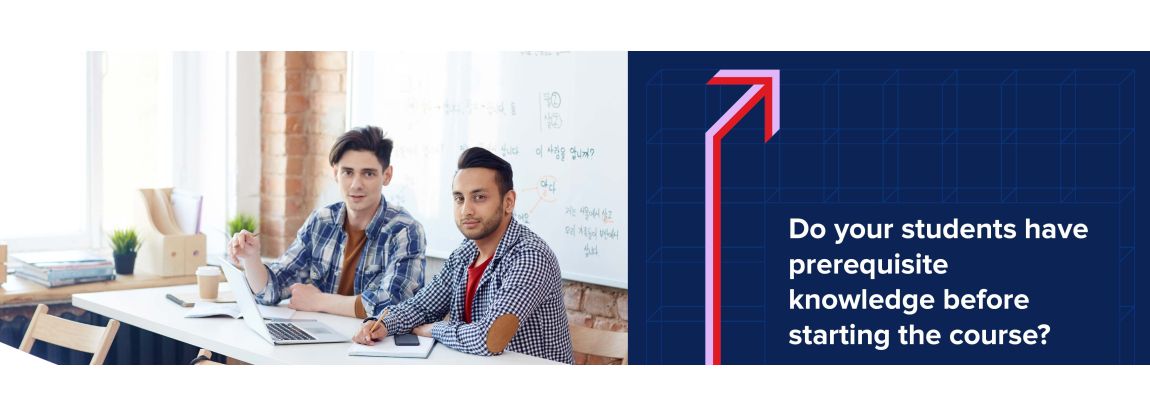Do your students have prerequisite knowledge before starting your course?
When it comes to gauging the right level of teaching for new cohorts of learners, it's not uncommon for assessments to be put in place to measure prior student knowledge.
By assessing students’ knowledge at the beginning of their course, the instructors can better understand the students’ needs and plan their course structure. So how can they assess whether the students have the baseline knowledge required for successful completion of the course?
There are different methods that they can choose from to assess the prior knowledge of their students. Some of the proven and effective strategies include the use of online learning platform, learning management systems (LMS) tools, and more traditional assessment measures.
1. Online learning platforms
These are brilliant tools that can be used by the instructors, irrespective of their teaching method, for assessing the knowledge of their students at the start of the course. Instructors can create prerequisite reviews or pre-tests in the learning platform that can provide immediate results about a student’s skill level. The initial knowledge check by McGraw Hill’s ALEKS® is a great example of such an assessment. The built-in analytics and reporting features provide great insight into the intellectual makeup of the students from the very onset.
2. Learning Management System (LMS)
These support the teaching and learning activities for instructors and their students. They can also be used in assessing the baseline knowledge of the students. A student’s preparedness can be measured by creating quizzes, discussions and other assignments using this platform. Similar to an online learning platform, it offers immediate results that can be used to evaluate and determine the student’s prior knowledge. Instructors can use this information to plan their course content before presenting it to the students.
3. Informal assessment measures
These methods can also be used to assess the students’ knowledge at the start of the course. Some of these measures include one-on -one instructor/student meetings, student instructional videos, and activities on the first day of the class (such as writing to a prompt or answering questions about prerequisite material). The instructors can have in-depth discussions with their students by asking questions such as “what are your past experiences in (enter discipline here)?”, “what is your comfort level with (enter discipline here)?”, or “what are your expectations of yourself in my course?”. These assessments can provide a great deal of information about the students’ prior knowledge along with their readiness to learn when they enter the classroom. Simultaneously, they demonstrate the commitment of the instructors in the academic success of their students and their desire to know them better as individuals.
Entrance exams and placement tests may not always offer an accurate insight into the knowledge of a group of learners and their readiness to start a new course. Utilising a variety of online and in-person assessments could be explored to better understand cohorts of learners and to bolster outcomes for all. The sooner this information is gathered the better as it will help the instructors to adjust their course content and teaching strategies.
This article was originally written by Sarah Alamilla. She has over 15 years of post-secondary teaching experience in developmental mathematics at Waukesha County Technical College. You can refer to the article here.

